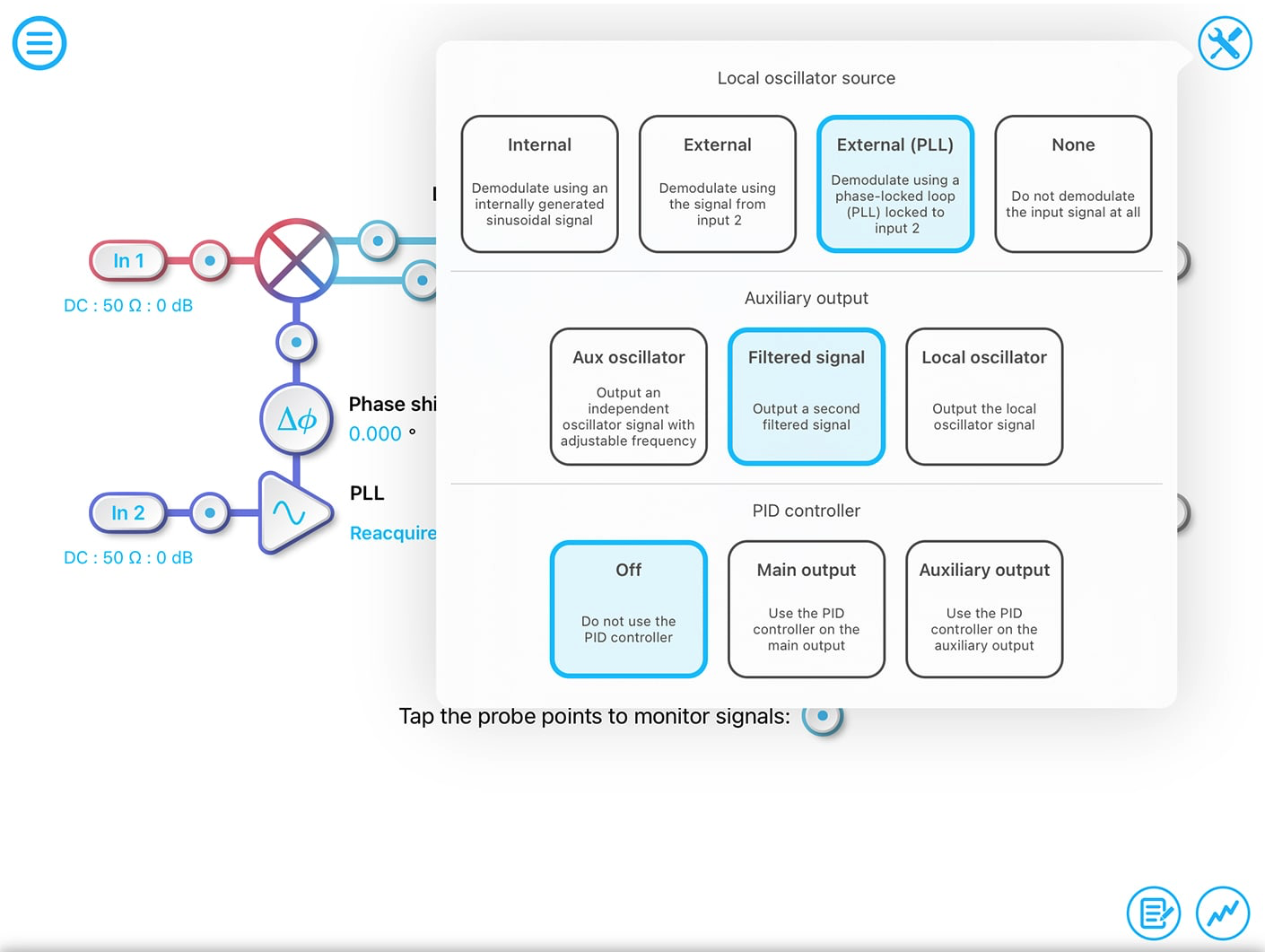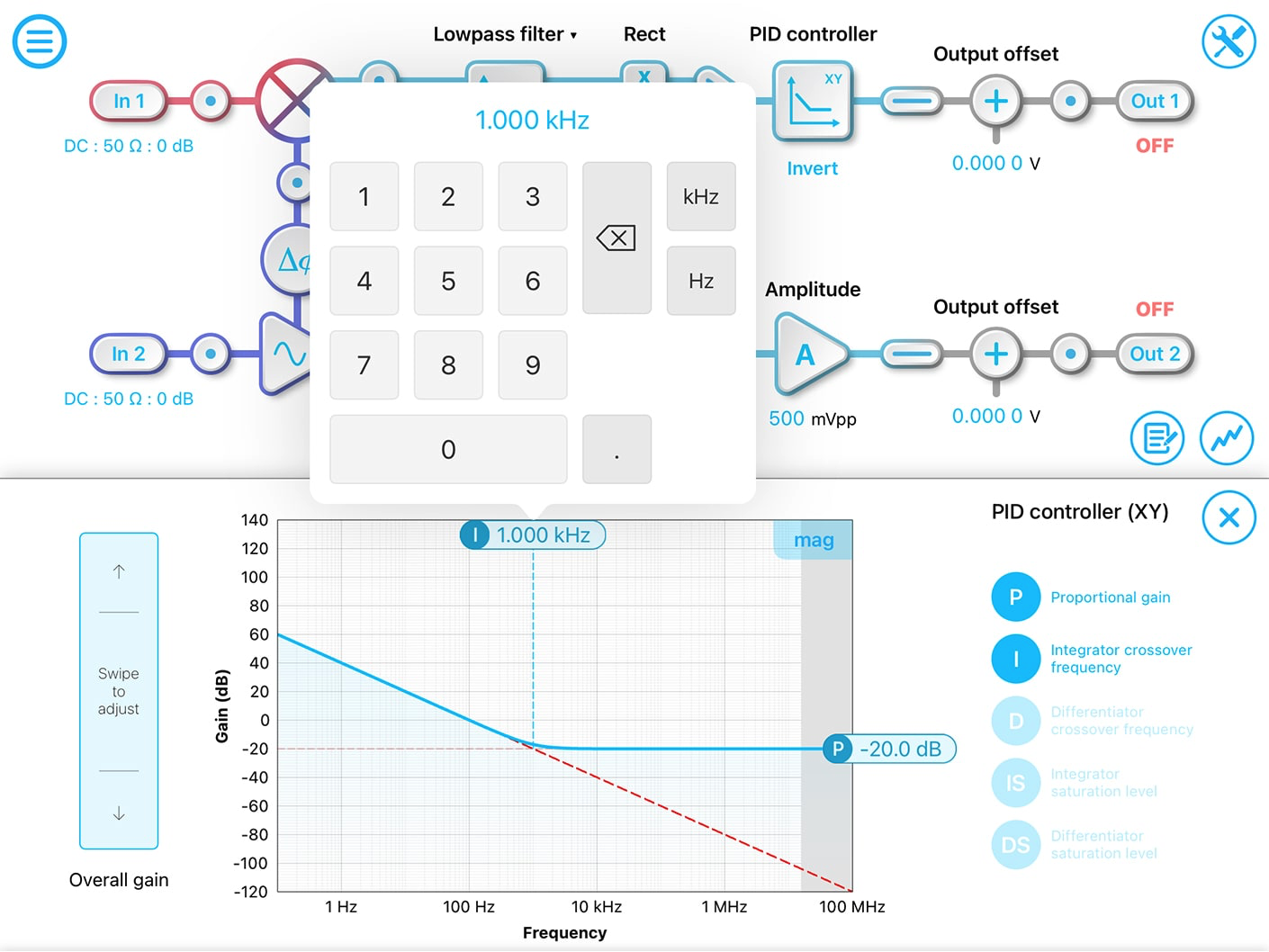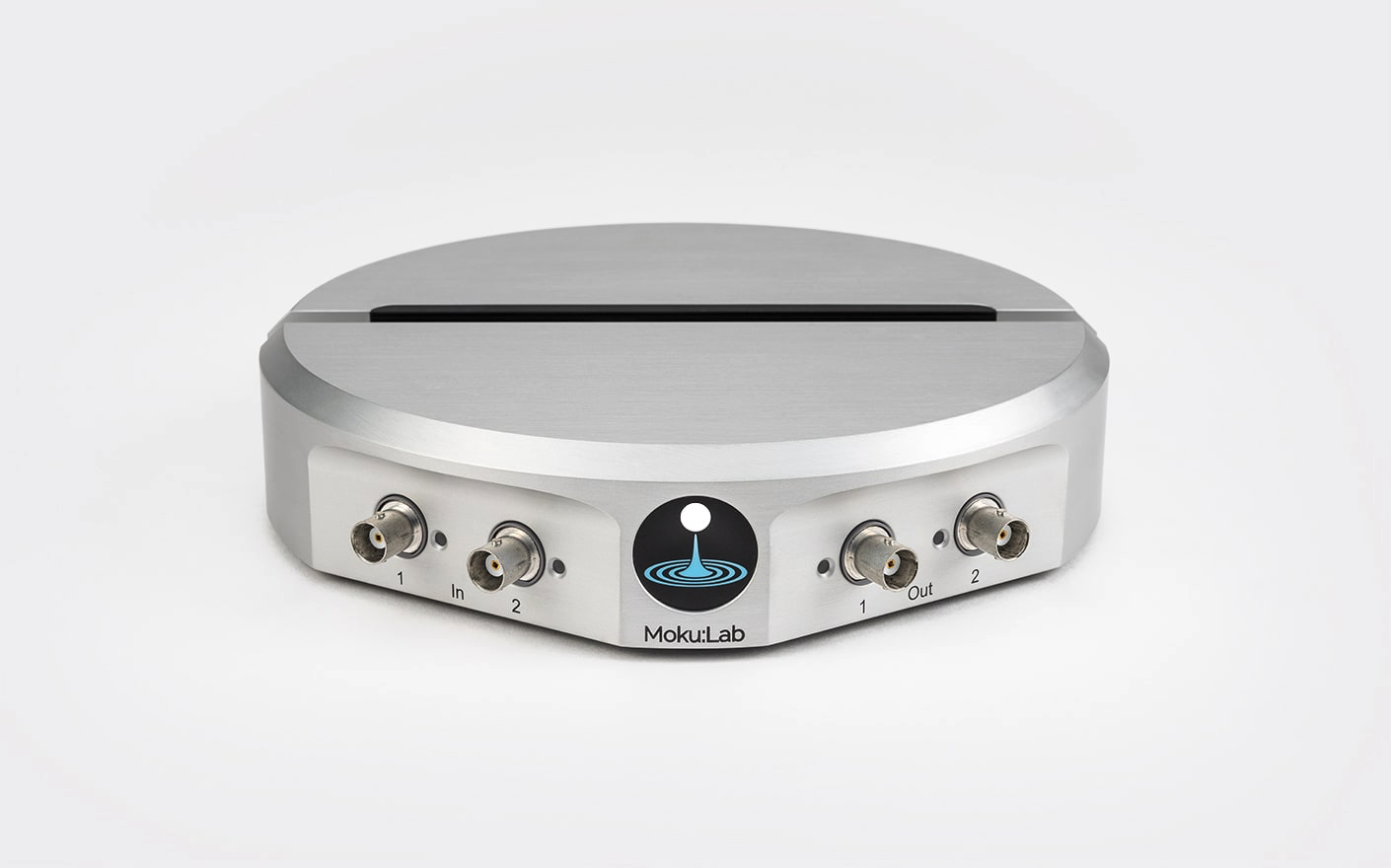Moku:Lab’s Lock-in Amplifier
Overview
Moku:Lab’s digital Lock-in Amplifier supports dual-phase demodulation (XY/Rθ) from DC to 200 MHz, with more than 120 dB of dynamic reserve. It also features an integrated 2‑channel oscilloscope and data logger, enabling you to observe signals at up to 500 MSa/s and log data at up to 1 MSa/s.

Specs
Demodulation frequency
Demodulate with frequencies ranging from 1 mHz to 200 MHz with 3.55 μHz resolution
Dynamic reserve
>120 dB
Adjustable time constant
From 32 ns to 0.537 s
Filter slopes
6, 12, 18, 24 dB/Oct
Ultra-fast data acquisition
• Snapshot mode up to 500 MSa/s
• Continuous mode up to 1 MSa/s
Dual-phase demodulation
X/Y or R/θ
Phase shift precision
0.001°
Input impedance
50 Ω / 1 MΩ
Output gain range
-80 to +160 dB
Local oscillator output
Up to 200 MHz with variable amplitude
Key features
Extract signals with high precision
Measure signals obscured by noise with more than 120 dB dynamic reserve
Custom configuration and data acquisition
Built-in probe points for signal monitoring and data logging
Choose your output coordinate
Toggle between rectangular (X/Y mode) or polar coordinates (R/θ mode)
Onboard PID controller
Real-time control over proportional, integral, and derivative gain profiles
Select from different demodulation modes
Internal, external (direct local oscillator input or phase-locked loop), with the option to bypass the mixer stage
Applications
Pump probe / ultrafast spectroscopy
Laser scanning microscopy (SRS, TA, etc)
Magnetic sensing (magneto-optical Kerr effect)
Laser frequency stabilization
Documentation
App Notes
Stimulated Raman Scattering MicroscopyLock-in Configuration Guide1.9.1 Update Setup GuideLock-in Frequency Sweep with LabVIEW
Videos
Moku:Lab’s Lock-in Amplifier — Overview
Making an AM Radio using a Lock-in Amplifier — Application
Sonar Application with Lock-in Amplifier
Moku:Lab’s Lock-in Amplifier Explained — Part 1
Moku:Lab’s Lock-in Amplifier Explained — Part 2
Configuring and Measuring with Moku:Lab’s Lock-in Amplifier — Technical Demo

Freedom in the lab when you need it
Observe the signal processing chain from an intuitive block-diagram with Moku software for iPad. Monitor in real-time with the built-in oscilloscope while moving freely throughout the lab.
Try it in demo mode
Dual-phase demodulation
Moku:Lab’s Lock-In Amplifier features a dual-phase demodulator with cascaded single pole low-pass filters to attenuate the second harmonic and suppress noise in each quadrature.
- Select between 6, 12, 18, and 24 dB / octave lowpass filter slopes
- Select between rectangular (X/Y) and polar (R/θ) coordinate modes
- View the demodulated in-phase and quadrature signals prior to the low-pass filters using the integrated Oscilloscope

Internal and external references
Demodulate your input signal with an internal or external reference. In internal mode, the orthogonal reference signals are generated internally using a direct digital synthesizer (DDS). In external mode, you can select between either direct or phase-locked options. In direct external mode, the input signal is demodulated using the reference input signal for single-phase demodulation (X). The phase-locked loop option reconstructs two orthogonal references that are phase-locked to the reference input signal to support external dual-phase demodulation (XY/Rθ). Additionally, the mixer stage can be bypassed for additional closed-loop control applications.

Integrated PID controller, oscilloscope, data logger
Monitor up to two signals at a time using the Lock-In Amplifier’s integrated 2 channel, 500 MSa/s oscilloscope, and continuously log data at up to 1 MSa/s using its built-in data logger. Additionally, the PID controller provides real-time control over proportional, integral, and derivative gain profiles with configurable saturation.

Available on Moku:Lab hardware
The digital signal processing power of an FPGA coupled with the high-quality analog front-end ensures that with Moku:Lab you never have to sacrifice performance for flexibility.
Like Moku:Lab’s Lock-in Amplifier?
View pricing Learn about Moku:Lab hardware
Or compare all hardware platforms


